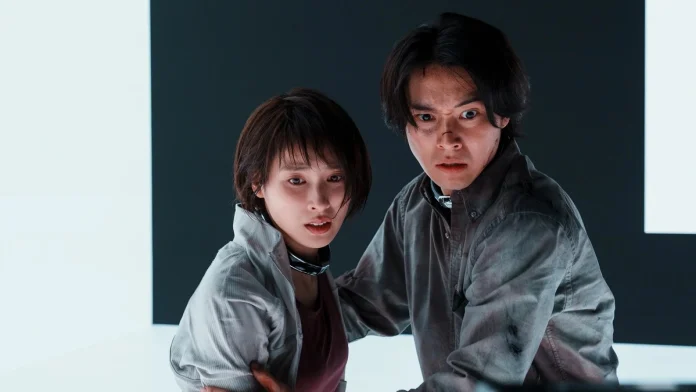Alice in Borderland’s third season suffers from Squid Game-ification of series
Five years after surviving the deadly games in the Borderland and coming back to life, Arisu (Kento Yamazaki) and Usagi (Tao Tsuchiya) lead a relatively quiet and peaceful married life. However, she continues to hold on to the trauma of seeing her father commit suicide. At the same time, the memories from their time in the Borderland’s games begin to return to the couple.
Obsessed with the afterlife and his theories involving the Borderland, a professor by the name of Ryuji Matsuyama (Kento Kaku) convinces Usagi to return to the games for answers by putting themselves into a coma.
Chasing after Usagi, with the help of Ann, Arisu puts himself in a cardiac arrest and once again finds himself inside the Borderland.
Rehashed storyline struggling to justify its existence
The second season of Alice in Borderland three years ago provided the perfect closure for Netflix’s adaptation of Haro Aso’s manga. In this third chapter, the series is revived with a new storyline, which by the end of its sixth episode, proves the season to be completely pointless.
As much as it is great to see the return of Arisu and Usagi as more mature characters, the show bends itself over backwards in an attempt to justify the third season’s existence, beginning with the inciting event of Usagi returning to the Borderland instead of just going to therapy, which ironically is the field Arisu is training in.
The logic of everything else then starts falling apart the further the episodes stretch, with the big offender being how often Arisu is offered a choice between staying in the Borderland or going back to the world of living with his wife, with him always picking the latter.
Alice in Borderland, as a whole, has never shown any signs as to why he would ever choose to be a Borderland permanent resident. Yet this season wastes an inordinate amount of time on repeatedly creating scenes and situations that present this illusion of choice within each death game, which are also just rehashes or combinations of the games in previous seasons.
Padding, filler and ‘Squid Game-ification’

These are symptoms of a bigger problem, where the season is largely padded with inane filler content, which includes the background, boring slice-of-life information dumps for all the new characters the season introduces – a liberty that the characters of the original two seasons did not have until the second season.
All these problems eventually come to a head in the sixth episode, which has a 20-minute or so sequence involving Arisu, Usagi and Ryuji in a flood, shouting their names at each other, in a sequence that could have been edited down to a fraction of its length.
Once that pointlessly protracted sequence is over, the pieces of the puzzle, cobbled from this season’s laundry list of problems, fall neatly into place as the real reason behind Alice in Borderland’s revival is revealed: Netflix sets up the potential for a sequel set in America.
The same was done with the finale of Squid Game’s third season. As fun as it is seeing the old Alice in Borderland leads return, the “Squid Game-ification” of the series is a turn-off and heralds the inevitable drowning of Netflix with more lazy cash grabs.
READ MORE:
Netflix’s Monster: The Ed Gein Story stitches fact, fiction into messy whole








